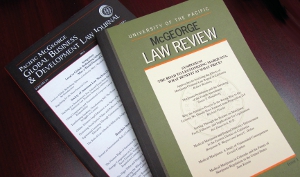Who’s Talking? Disentangling Government and Private Speech
Document Type
Article
Publication Date
2002
Abstract
Several different constitutional rules apply to government actions that influence the content of speech. The government has far more discretion to determine speech content when the government itself is the speaker than when it regulates private speakers. Specifically, in the former circumstance, the government can discriminate according to viewpoint, whereas in the latter circumstance it cannot. While the application of the rules may be obvious when either the government or private entities speak alone, increasingly, through various different types of interactions, government and private groups or individuals are speaking together. This circumstance complicates the crucial constitutional determination, which is: who's talking?
This Article sets out the analysis necessary to make the speaker determination when government and private entities speak together. The different rules that limit government influence on the content of government and private speech exist because of the different constitutional values that attach to them. These values suggest characteristics that render government speech legitimate. Only when these characteristics exist in a government/private speech interaction should the more lenient constitutional rules-rules that allow viewpoint discriminatory government influence over speech content-apply. Otherwise, the more strict rules should limit government influence over speech content. This Article examines a number of different types of government/private speech interactions, identifying how variations in their structures determine the government's constitutional discretion to influence speech content.
Publication Title
Univ. of Mich. J. L. Reform
ISSN
2688-4933
Volume
36
Issue
1
First Page
1
Recommended Citation
Leslie G. Jacobs,
Who’s Talking? Disentangling Government and Private Speech,
36
U. Mich. J.L. Reform
1
(2002).
Available at:
https://scholarlycommons.pacific.edu/facultyarticles/549



